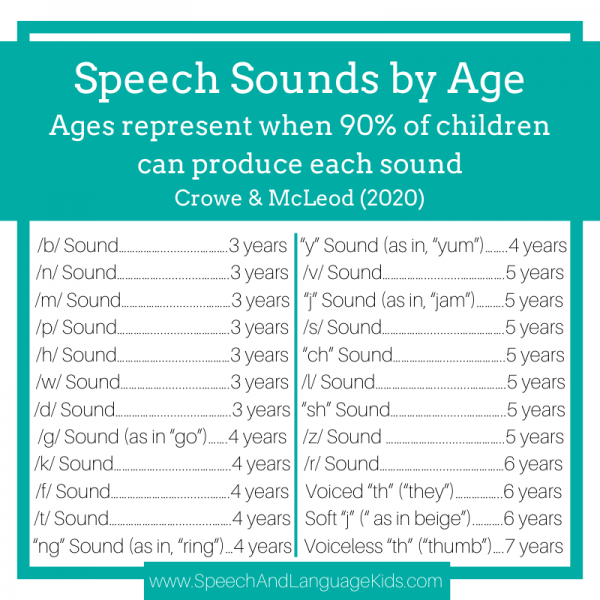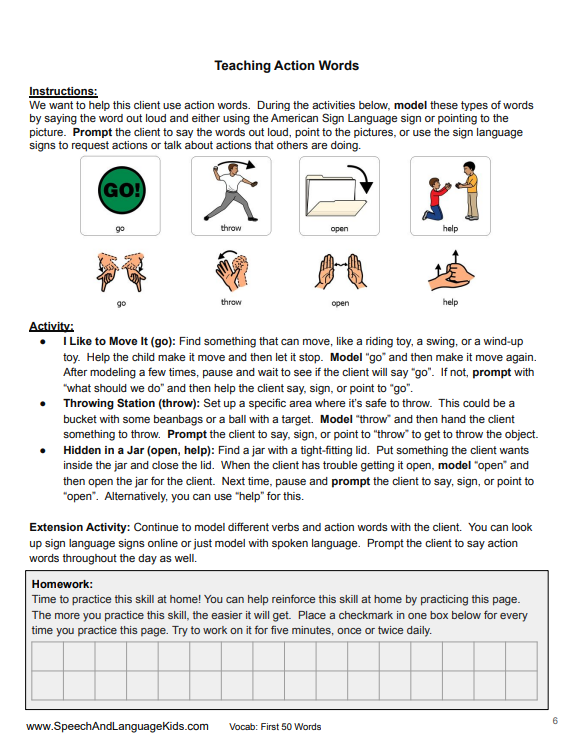Early Intervention Speech Therapy Activities
How can we help little ones (birth – 3 years) learn to speak?
How can we improve their social interaction skills and their ability to communicate their basic wants and needs?
And how can we help reduce frustration for child AND parents?
On this page, we’ll show you some amazing early intervention speech therapy activities that will teach communication skills to young children. Whether you’re an SLP, SLPA, parent, or educator, we have what you need to help those little ones!
What is Early Intervention?
Early intervention is what we call therapy services delivered from birth-5 years of age. These are the years before kids enter Kindergarten and the public schools. These years are critical for communication development so if a child has communication difficulties, it is crucial that they get help early. This resource page will help you identify which speech and language skills children should have and then give you resources to be able to help if they are falling behind.
Listen to our Early Intervention Speech Therapy Podcast Episode:
Communication Milestones: What Skills Should a Child Have?
Many communication skills develop during the early years. If you are wondering if your child is on track, check out these links that will break down speech and language skills by age:
- 6-Month-Old Communication Skills
- 1-Year-Old Speech and Language Skills
- 2-Year-Old Speech and Language Skills
- 3-Year-Old Speech and Language Skills
- 4-Year-Old Speech and Language Skills
- 5-Year-Old Speech and Language Skills
Common Early Childhood Speech Therapy Goals:
I have many resources on this website that are appropriate for the early childhood population, but let me point out the ones that are most commonly encountered. If you don’t see the problem you’re looking for, try typing it into the search bar at the top of the page. If you still don’t find anything, shoot me an email and I’ll add it to my list of topics to cover (Carrie@speechandlanguagekids.com).
Late Talkers
Children who don’t start talking when we expect them to may be late talkers. I’ve created an entire resource for parents and speech therapists who are working with late talkers:
Late Talker Resource Page: http://www.speechandlanguagekids.com/late-talker-resource-page/
Speech Sound Problems
Young children are often difficult to understand due to speech errors. This is a very normal part of the early childhood years. However, their intelligibility should improve as they get older. By 2 years of age, you should understand at least half of what the child says. By 3 years, that should be up to 75% and 80-90% by 4 years. By 5 years, everything should be understood, although there may be a few lingering speech sounds that the child is having trouble with.
In addition, certain speech sounds are not typically mastered by children until they are a bit older. For example, we wouldn’t expect a preschooler to be able to say /r/ yet because that sound requires more specific tongue movements that the child may not be capable of yet. Some preschoolers can say the /r/ sound but we don’t consider it a problem until that child is school-aged.
Take a look at the chart below. These numbers represent the age that the child must have each sound by. This is based on research of when the latest possible age for sound development is. If a child doesn’t have one of these sounds by the age listed, it is unlikely to resolve itself and speech therapy should be started to address the error.

What if Speech is Still Unclear?
If your child is difficult to understand but is still “age-appropriate” (meaning he/she is meeting all of these percentages/ages), you can help clear up your child’s speech by using the following tips:
- Direct your child to watch your mouth while you slowly say a word he’s having trouble with
- Have your child watch himself (and you) in a mirror while he says a word or sound
- Have the child just practice a sound that he’s struggling with by itself (like t…t…t) and practice that for a while before trying it in single words
- Break longer words up by having the child practice each syllable separately. I like to start with the last syllable and work forward, like “fly….tterfly…..butterfly”
If your child (or a child you are working with) needs help with speech sound skills, check out my resource guide:
Speech Sound Resource Guide: http://www.speechandlanguagekids.com/speech-sound-resource-page/
Or, if your child is having trouble with entire groups of sounds, try this link:
Phonological Processes Page: http://www.speechandlanguagekids.com/phonological-processes/
Language Delays
The term “Language Delays” refers to any difficulty that the child is having with communication that doesn’t involve speech, stuttering, or voice quality. It can include children who aren’t using long enough sentences, those who can’t follow directions, those who don’t understand what you’re saying to them, and those who can’t put words together to tell you what they want or need. Here are some resources on the different areas of language:
- Grammar Resource Page: http://www.speechandlanguagekids.com/grammar-resource-page/
- Expressive Language Skills: http://www.speechandlanguagekids.com/expressive-language-delay-resource-page/
- Receptive Language Skills: http://www.speechandlanguagekids.com/receptive-language-delay/
- Social Language Page: http://www.speechandlanguagekids.com/social-skills-resource-page/
- Asking and Answering Questions Resource Page: http://www.speechandlanguagekids.com/questions-resource-page/
- Vocabulary Resource Page: http://www.speechandlanguagekids.com/vocabulary-resource-page/
Also, if the child you’re working with is using sentences that are shorter than what they should be for his age, try this guide all about increasing the child’s average sentence length:
Increasing MLU (sentence length) Resource Page: http://www.speechandlanguagekids.com/increasing-sentence-length-mlu/
How to Help Non-Speaking Children
The term “non-speaking” is used to describe children who are not yet speaking or who have very, very few words that they do speak. Some young non-speaking children may begin speaking on their own without therapy or intervention, but it is impossible to know if your child will be one of those kids. Also, if your child does need intervention, it’s better to start it sooner rather than later so it is ALWAYS best to seek help as soon as you feel there is a problem. Don’t wait!
Check out our Functional Communication Curriculums for Non-Speaking Children
Stuttering in Early Childhood
It is very normal for children in the early childhood years to go through periods of stuttering, especially as their language is growing rapidly. It seems that sometimes their mouths just can’t keep up with all that they want to say! However, there are some red flags that “normal” stuttering may be something more serious and may need intervention. Check out my resources on stuttering here:
Stuttering Resource Page: http://www.speechandlanguagekids.com/stuttering-cluttering-resource-page/
Behavior Problems in Early Childhood
Although many children in the Early Childhood years engage in challenging behaviors, our kiddos with speech and language delays often have even more. It can be very frustrating for our kiddos who want to communicate something to you but don’t have the words to do so. If you are dealing with some challenging behaviors in an Early Childhood kiddo, check out this resource:
Challenging Behaviors Resource Page: http://www.speechandlanguagekids.com/sensory-behavior-resource-page/

About the Author: Carrie Clark, MA CCC-SLP
Hi, I’m Carrie! I’m a speech-language pathologist from Columbia, Missouri, USA. I’ve worked with children and teenagers of all ages in schools, preschools, and even my own private practice. I love digging through the research on speech and language topics and breaking it down into step-by-step plans for my followers.
Connect with Me:
Podcast: Play in new window | Download | Embed



